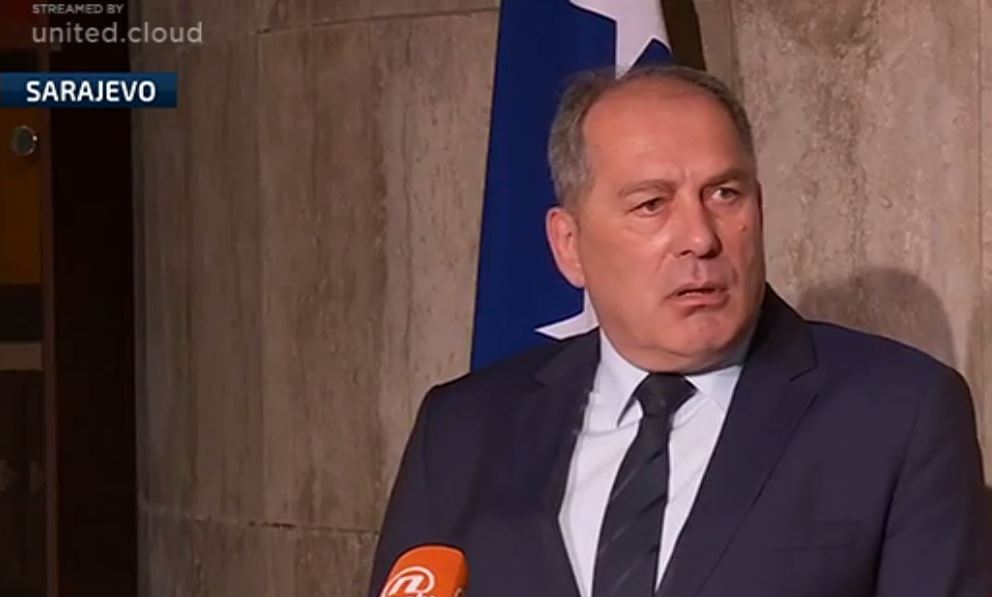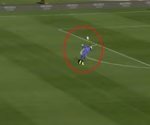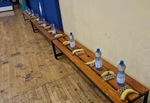
A Government session with a 71 items agenda was postponed on Tuesday because Bosnian Croat ministers did not show up in what their colleagues labelled as planned obstruction.
According to Security Minister Dragan Mektic, ministers from the main Croat party in the country, the Bosnia’s Croat Democratic Union (HDZ BiH), did not attend the session because they followed a plan of their ally, the Bosnian Serb leader Milorad Dodik.
“This was a classic attempt to block this institution, which is what Milorad Dodik announced a month and a half ago when he said that representatives, ministers from the Croat people would stop attending sessions of the Council of Ministers,” said Mektic.
Bosnia’s government is called the Council of Ministers. Dodik, who is currently the Chairman of the tripartite Presidency, has been complaining because the Council has not been formed since the election in October 2018.
The reason is mostly that his two colleagues in the tripartite Presidency keep refusing to greenlight the new prime minister he proposed because the candidate is opposed to the country's path towards NATO membership.
Bosnia has previously pursued NATO membership but in recent years the party of the Bosnian Serb leader has changed its mind and the candidate comes from that party.
But Dodik’s party has also formed an alliance with the HDZ months before the election took place.
That is why the Mektic believes Dodik is behind the absence of HDZ Ministers at the session.
“In that way, they are boycotting the work of this institution,” Mektic said.
“We can try to deceive the public, to cheat it by saying that we are doing something but we are actually since May 4 not working,” he said, adding that it “bothers” him.
He also called upon politicians to finally form the new government.
“Obviously to some here the interests of the citizens of Bosnia and Herzegovina, their fate, their problems are not important, but political interests and taking positions is,” he said.
“I call upon them to form the Council of Ministers, but until they do, is it normal for us to not work?” he asked.
Mektic also said he does not care about who his successor in the new government will be, as long as the problems of Bosnia’s citizens are being addressed.
The Minister of Foreign Trade and Economic Relations, Mirko Sarovic, also commented on the failed session.
“I believe we should attend the sessions of the Council of Ministers of Bosnia and Herzegovina because we are paid to do so, it is our obligation and they expect it. Forming the Council of Ministers is an issue between the political parties, we are in a mandate without limits until the moment when a new Council of Ministers is formed,” he said.
He added that the work of the government “cannot be based on telephone sessions” as only smaller issues can be solved that way while a proper session is meant for discussing true problems.
“Every time a session of the Council of Ministers is not held it has an effect on the entire economic, political and every other sphere in Bosnia and Herzegovina,” Sarovic said.
But according to the Finance Minister from the HDZ, Vjekoslav Bevanda, the session was not organised according to the rules, which is why he said he did not attend.
“As the Deputy Chairman of the Council of Ministers and the Minister of Finance and Treasury of Bosnia and Herzegovina, I expect that sessions are organised according to the law and the Rules of procedure and that the agenda is put together in that way as well,” he said in a statement sent to media, arguing that he cannot attend a session if the material for all of the talking points is sent to him “in less than 24 hours without containing the complete assessment from the relevant institutions.”
He also said he informed the Chairman of the Council of Ministers about his absence and provided a precise explanation for it and that he is “not interested in anyone’s arbitrary statements regarding blockages and obstructions.”
Kakvo je tvoje mišljenje o ovome?
Učestvuj u diskusiji ili pročitaj komentare





 Srbija
Srbija
 Hrvatska
Hrvatska
 Slovenija
Slovenija



























































